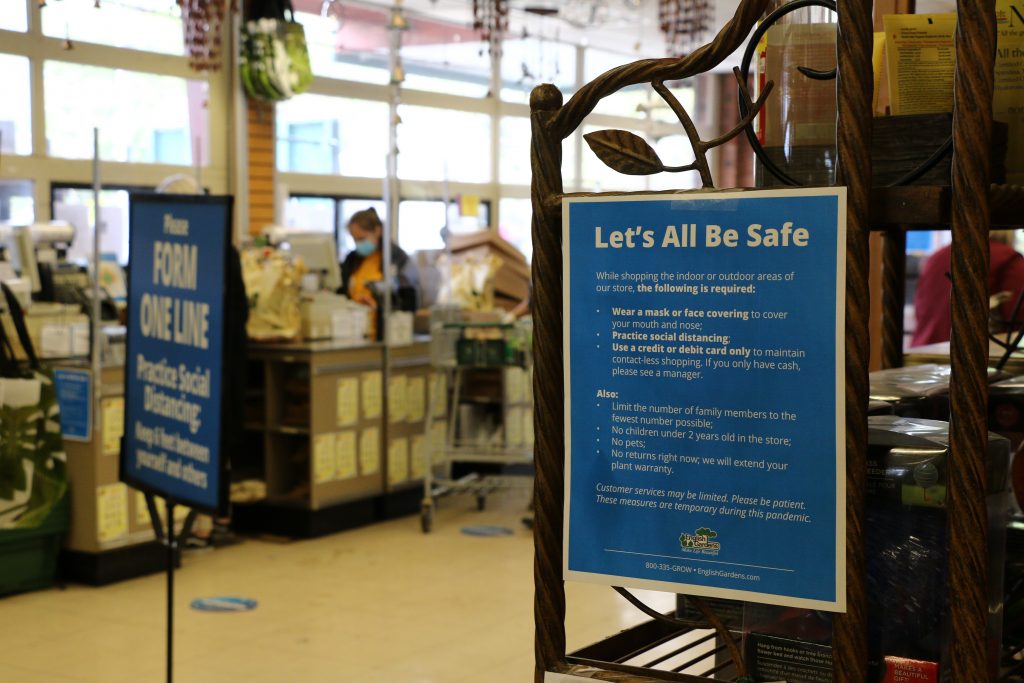Concerned About Returning to Work? You’ve Got Limited Options
Workers can’t turn down a job opportunity out of fear of contracting COVID-19 and still collect unemployment. WDET’s Laura Herberg looked at what options they do have.

Parts of Michigan are starting to see stores reopen — putting workers concerned about staying healthy in a tough position.
“I definitely think that me and many other people, if we had to go back to work today, we would be in a panic.” — Luis Krebs, server
Restaurants were recently allowed to open up in Northern Michigan, but there’s currently no date set for when dining room service can resume in the rest of the state. Gardening stores and other safe, socially-distant activities have returned as well.
Click on the player above to hear what workers can do if they’re afraid returning to work means they’ll get COVID-19.

As businesses resume operations, laid-off employees are going to be asked to return to their jobs.
Governor Gretchen Whitmer says she believes many workers and customers don’t want to go into a business if it means they could catch a potentially deadly virus.
“It’s hard to get customers to come out because they’re scared. It’s hard to get employees to show up because they’re scared,” says Whitmer.
But that puts concerned workers in a tough position for their health and income.
“I definitely think that me and many other people, if we had to go back to work today, we would be in a panic,” says Luis Krebs, a server at a restaurant in Detroit. “It would be a very stressful situation having to go back to work and interact with people ‘normally.'”
“The law is very clear that you cannot stay home because you’re scared of getting COVID-19.” — Elizabeth Welch, attorney
What Can A Worried Worker Do?
A laid-off worker cannot turn down a job opportunity and continue to collect unemployment, says Attorney Elizabeth Welch in a webinar from the Michigan Association for Justice.
“The law is very clear that you cannot stay home because you’re scared of getting COVID-19,” Welch says.
But she says there are some protections for workers who were never laid-off or who’ve already returned to the workforce.
The Family Medical Leave Act
Under the Family and Medical Leave Act, eligible employees with serious health conditions can get several weeks of unpaid vacation.
“Let’s say that, all this COVID-19 thing is really just stressing you out,” Welch says, referring to anxiety and depression “You could go to your doctor and if they found you to have a serious health condition and needed to be off work, you could use traditional FMLA.”
Americans With Disabilities Act
Older workers and individuals with serious chronic medical conditions can use the Americans with Disabilities Act to ask their employer if they can accommodate them by allowing them to work from home.
Employers must consider the request and attempt to provide reasonable accommodations.
Family First Coronavirus Response Act
Finally, some workers may be eligible for a limited amount of paid leave if they are sick, if they’ve been exposed to the virus, or if the pandemic has closed their kid’s school or daycare, thanks to the Families First Coronavirus Response Act.
Preparing for the Possibilities
In the meantime, Krebs, the restaurant server, is preparing.
He says he feels like the owners of Chartreuse, his employer, are looking out for their employees. But Krebs and some of his co-workers have begun organizing with other restaurant workers for more industry protections.
“Basically the most important thing [is] just being sure that we’re not going to just go back to die.” — Luis Krebs, server
Right now the group is in the outreach phase, drafting a list of demands. Krebs says so far the list includes things like making a livable wage, holding on to partial unemployment benefits after returning to work, getting paid sick leave and “basically the most important thing, just being sure that we’re not going to just go back to die.”
Trusted, accurate, up-to-date
WDET is here to keep you informed on essential information, news and resources related to COVID-19.
This is a stressful, insecure time for many. So it’s more important than ever for you, our listeners and readers, who are able to donate to keep supporting WDET’s mission. Please make a gift today.
